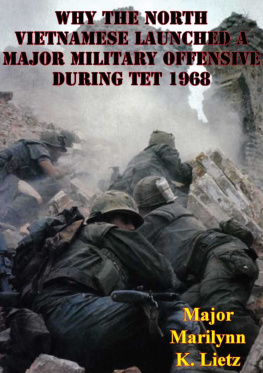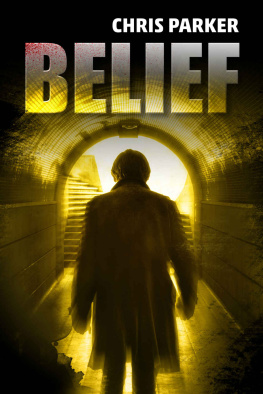Marilynn Richtarik - Stewart Parker
Here you can read online Marilynn Richtarik - Stewart Parker full text of the book (entire story) in english for free. Download pdf and epub, get meaning, cover and reviews about this ebook. year: 2012, publisher: OxfordUP, genre: Non-fiction. Description of the work, (preface) as well as reviews are available. Best literature library LitArk.com created for fans of good reading and offers a wide selection of genres:
Romance novel
Science fiction
Adventure
Detective
Science
History
Home and family
Prose
Art
Politics
Computer
Non-fiction
Religion
Business
Children
Humor
Choose a favorite category and find really read worthwhile books. Enjoy immersion in the world of imagination, feel the emotions of the characters or learn something new for yourself, make an fascinating discovery.

- Book:Stewart Parker
- Author:
- Publisher:OxfordUP
- Genre:
- Year:2012
- Rating:3 / 5
- Favourites:Add to favourites
- Your mark:
- 60
- 1
- 2
- 3
- 4
- 5
Stewart Parker: summary, description and annotation
We offer to read an annotation, description, summary or preface (depends on what the author of the book "Stewart Parker" wrote himself). If you haven't found the necessary information about the book — write in the comments, we will try to find it.
Stewart Parker — read online for free the complete book (whole text) full work
Below is the text of the book, divided by pages. System saving the place of the last page read, allows you to conveniently read the book "Stewart Parker" online for free, without having to search again every time where you left off. Put a bookmark, and you can go to the page where you finished reading at any time.
Font size:
Interval:
Bookmark:
A Life

Marilynn Richtarik


Great Clarendon Street, Oxford, OX2 6DP,
United Kingdom
Oxford University Press is a department of the University of Oxford.
It furthers the Universitys objective of excellence in research, scholarship, and education by publishing worldwide. Oxford is a registered trade mark of Oxford University Press in the UK and in certain other countries
Marilynn Richtarik 2012
The moral rights of the author have been asserted
First Edition published in 2012
Impression: 1
All rights reserved. No part of this publication may be reproduced, stored in a retrieval system, or transmitted, in any form or by any means, without the prior permission in writing of Oxford University Press, or as expressly permitted by law, by licence or under terms agreed with the appropriate reprographics rights organization. Enquiries concerning reproduction outside the scope of the above should be sent to the Rights Department, Oxford University Press, at the address above
You must not circulate this work in any other form and you must impose this same condition on any acquirer
British Library Cataloguing in Publication Data
Data available
Library of Congress Cataloging in Publication Data
Data available
ISBN 9780199695034
Printed in Great Britain by
MPG Books Group, Bodmin and Kings Lynn
Links to third party websites are provided by Oxford in good faith and for information only. Oxford disclaims any responsibility for the materials contained in any third party website referenced in this work
This book is dedicated to the friends of
Stewart Parker, old and new
Belfast in the mid-1970s ranked among the least auspicious places imaginable for a playwright to attempt to launch a career. For years, both republican and loyalist paramilitaries had employed random attacks on civilians to underline their demands that Northern Ireland should break or maintain its ties with the United Kingdom. Not surprisingly, people stayed close to home at night, and all but one of the citys few theatres had closed. Nevertheless, when Stewart Parker completed Spokesong (1975), the play that would establish his international reputation, he felt desperate for it to be seen first by a Belfast audience. He and a group of friends and collaborators launched a fund-raising campaign to try to mount an independent production, but they ended up, as he recalled bitterly ten years later, with just one positive responsean offer of 75 from British Rail. As an ironist, I felt very keenly the poetic aptness of this donor, whose services I would later engage to take a one-way journey out. In the event, Spokesong did not receive an indigenous Belfast production until 1989, by which time it had been staged in Dublin, London, New York City, Belgium, Denmark, Finland, Canada, Sweden, the Netherlands, Norway, Australia, New Zealand, and in regional theatres all over the United States. Parker, meanwhile, had given up on Belfast as a base, moving first to Edinburgh and then to London, where he died of stomach cancer in 1988 at the age of 47. As James Joyce had discovered before him, though, he found that leaving home need not entail abandoning it intellectually or emotionally.
The overarching theme of this book is the relationship between Stewart Parker and Belfast. In many ways, this is a familiar story of Irish artistic exile. Like Joyce, Samuel Beckett, and Sean OCasey, Parker spent much of his life outside Ireland (including the most productive years of his play-writing career). The year before he died, though, he proclaimed himself happy to be called a Belfast playwright; indeed, he said, its the only kind of description that makes any sense to me. This identity constituted a matter of choice for him as well as of birth. The child of working-class Protestant parents, Parker attended Queens University Belfast in the 1960s as one of the beneficiaries of the Education Act that put state-funded higher education within the reach of people from backgrounds like his. Fascinated by American poetry and popular culture, he dreamed of emigrating, and from 1964 until 1969 he lived and taught in the US. There he bore intent witness to the civil rights movement, Vietnam War protests, and political violence, going home to Northern Ireland in August 1969 (the same week the British Army arrived to attempt to quell sectarian disturbances) because he had come to feel that he would never be more than an observer in North America. To get below the surface of things, he had to grapple with his birthplace, which he loved and hated in equal measure.
Parker brought back with him a heightened political awareness and a sense of the role of cultural revolutionaries in instigating social change. When he returned to Belfast in 1969, he returned spiritually as well as physically, determined to address himself to the city instead of continuing to try to escape or transcend it. Inspired by a former teacher, John Malone, he had already begun to take an interest in local history, especially those aspects of it that demonstrated that sectarian divisions need not be a timeless condition of Northern Irish life. By 1967, for example, Parker had started to research the United Irish movement of the 1790s for a play he planned to write on Henry Joy McCracken, one of the Belfast leaders of the 1798 rebellion (work that issued over fifteen years later in his 1984 masterpiece Northern Star).
The Troubles really made Parker into a Belfast playwright, though, by giving new urgency to his private project of imagining alternatives to Northern Irelands stalemate. Throughout his career, however, he rejected pressure to take sides or to make the violence itself the subject of his plays. Instead, his interest lay in getting behind the symptoms of cultural division and finding new and unexpected angles from which to examine it. Sometimes Parkers independent attitude manifested itself in metaphorical approaches to Northern Ireland: Kingdom Come (1978), for example, recreates the social and political configuration of the North on a fictional Caribbean island. He also illuminated the forces activating the Northern crisis by displacing the action in time, as in Northern Star, to focus on the causes of the Troubles rather than merely their effects. Whatever his formal strategy, Parkers writing reflects his individualism, liberal humanism, and the socialist perspective that helped him evade sectarian pitfalls.
Many of Parkers best dramatic works, most written after he moved away from the city for good in 1978, can be described as Belfast history plays. From Spokesong, the protagonist of which is a bicycle salesman obsessed with his dead grandparents, to Parkers last play, Pentecost (1987), the city of Belfast looms larger than any nationdeliberately so, I think, since Protestants and Catholics there may not be able to agree on whether they are British or Irish, but they all know where they live. Citizens of Belfast , McCracken declaims repeatedly in Northern Star, addressing not only his contemporaries in the play but generations to come in the theatre. It is in the implied audience for his plays that Parker is most quintessentially a Belfast playwright. He conceived of drama as a ritual communal act, and his ideal imagined audience was usually a Belfast one. His entire career, by means of which he wedded himself to his native place through a creative engagement with its history, declared his faith in peoples capacity to be educated into tolerance and appreciation of one another. As his friend and contemporary Seamus Heaney puts it, Parker gave people a renewed trust in the very possibility of trust itself.
Font size:
Interval:
Bookmark:
Similar books «Stewart Parker»
Look at similar books to Stewart Parker. We have selected literature similar in name and meaning in the hope of providing readers with more options to find new, interesting, not yet read works.
Discussion, reviews of the book Stewart Parker and just readers' own opinions. Leave your comments, write what you think about the work, its meaning or the main characters. Specify what exactly you liked and what you didn't like, and why you think so.










